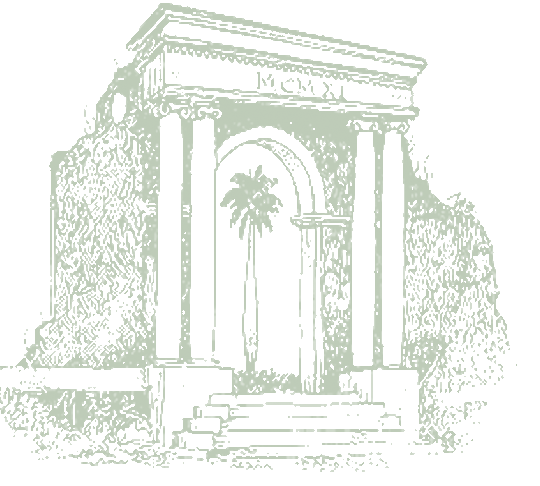BIOLOGICAL OCEANOGRAPHY (CMOB)Biological oceanography seeks to understand the life histories and population dynamics of marine organisms and how they interact with their environment over space and time. Biological oceanographers in the department utilize a variety of techniques including SCUBA, shipboard samplers, acoustics, molecular biology, and mathematical modeling to understand the oceans and their inhabitants. Research is focus on: marine physiology, botany, microbiology, ichtiology invertebrates, remote sensing, molecular biology, and fisheries. Graduate Courses CMOB 6018. MARINE ECOLOGY (I, II) (On demand). Four credit hours. Three hours of lecture and one three-hour laboratory per week. Structure and function of marine ecosystems; flux of energy and materials in biogeochemical cycles. CMOB 6077. ZOOPLANKTON ECOLOGY(On demand). Three credit hours. Two hours of lecture and one three-hour laboratory per week. Prerequisite: authorization of the Director of the Department. Aspects of zooplankton ecology in relation to oceanographic processes in estuarine, neritic, and oceanic ecosystems. Includes experiences in sampling techniques and experimental design. CMOB 6618. BIOLOGICAL OCEANOGRAPHY(I).Three credit hours. Two hours of lecture and one three-hour laboratory per week. Marine life and its relationship to geological, physical and chemical aspects of the ocean; basic techniques fundamental to marine research. Demonstrations and field trips. CMOB 6619. BIO-OPTICAL OCEANOGRAPHY (I)(On demand). Four credit hours. Three hours of lecture and one three-hour laboratory per week. Integrated study of the role of light in aquatic ecosystems including the physics of light transmission within water, the biochemistry and physiology of aquatic photosynthesis, and the ecological relationships that depend on the underwater light environment. Field trips required. CMOB 6635. RESEARCH METHODS IN MARINE SCIENCES (II).Three credit hours. Three hours of lecture per week. Techniques of data collection, analysis, and interpretation with emphasis on research problems relevant to the marine ecosystems of Puerto Rico. CMOB 6645. MARINE PLANKTON BIOLOGY (I, II)(On demand). Two credit hours. One hour of lecture and one three-hour laboratory per week. Study of the marine plankton with emphasis on systematics, morphology, life histories, physiology, feeding, and reproduction. Importance of plankton on the economy of the sea, particularly in their role as primary and secondary producers. Field trips required. CMOB 6655. MOLECULAR MARINE BIOLOGY (I, II)(On demand). Four credit hours. Two hours of lecture and two three-hour laboratories per week. Prerequisite: authorization of the Director of the Department. Theory, practice, and applications of molecular marine biology. CMOB 8635. MARINE MICROBIOLOGY.Three credit hours. Two lectures and one three-hour laboratory per week. A study of the biology of marine microalgae, bacteria and protozoa, with emphasis on the techniques of pure cultures and the physiology and ecology of marine organisms, both autotrophic and heterotrophic. CMOB 8649. CRITICAL ANALYSIS OF READINGS IN MARINE ECOLOGY (II)(On demand). Two credit hours. Four hours of seminar per week. Study of classical and recent readings in marine ecology. Analysis of authors' aims, methods, results, and interpretations. CMOB 8667. ADVANCED FISHERIES BIOLOGY (I, II)(On demand). Three credit hours. Two hours of lecture and one three-hour laboratory per week. Prerequisites: authorization of the Director of the Department. Population dynamics of exploited species, management and conservation principles for commercial fisheries. CMOB 8676. SYSTEMATICS OF MARINE INVERTEBRATES (I)(On demand). Four credit hours. Three hours of lecture and one four-hour laboratory per week. Taxonomy, phylogeny and distribution of marine invertebrates with special attention to local forms. CMOB 8678. MARINE POPULATION BIOLOGY (I, II)(On demand). Three credit hours. Three hours of lecture per week. Principles of population biology and their application to the organization of marine communities. CMOB 8679. MARINE BOTANY (I, II).Three credit hours. Two hours of lecture and one three hour laboratory per week. A study of the flora of the sea, with emphasis on the morphology, ecology and taxonomy of algae. CMOB 8686. ICHTHYOLOGY I (II)(On demand). Three credit hours. Two hours of lecture and one three-hour laboratory per week. A study of the morphology, physiology and ecology of fishes, with emphasis on marine forms. CMOB 8687. ICHTHYOLOGY II (I)(On demand). Three credit hours. Two hours of lecture and one three-hour laboratory per week. A study of the systematics, evolution and distribution of fishes, with emphasis on marine forms. CMOB 8708. CORAL REEF BIOLOGY.Four credit hours. Three hours of lecture and one three-hour laboratory per week. Evolution, characteristics, and distribution of coral reefs. Field trips required. CMOB 8715. ECOLOGICAL CONCEPTS IN MARINE RESEARCH (I, II)(On demand). Three credit hours. Two hours of lecture and one three hour laboratory per week. Advanced ecological concepts with special emphasis on the marine environment; energy relationships in ecological systems; application of quantitative biology and experimental methods in ecological research. CMOB 8716. ECOLOGY OF MARINE COMMUNITIES SEMINAR (II)(On demand). Two credit hours. Two sessions per week. Composition and quantitative structure of selected marine assemblages, and their energetic and tropic relationships.
CMOB 8992. A, B, C. SPECIAL PROBLEMS IN MARINE PHYSIOLOGY (I, II)(On demand). One to three credit hours. One to three sessions per week.
CMOB 8993. A, B, C. SPECIAL TOPICS IN AQUACULTURE (I, II)(On demand). One to three credit hours. One to three sessions per week.
CMOB 8994. A, B, C. SPECIAL PROBLEMS IN MARINE INVERTEBRATES (I, II)(On demand). One to three credit hours. One to three sessions per week.
CMOB 8995. A, B, C. SPECIAL PROBLEMS IN FISHERIES BIOLOGY (I, II).One to three credit hours. One to three sessions per week.
CMOB 8996. A, B, C. SPECIAL PROBLEMS IN MARINE ALGAE (I, II)(On demand). One to three credit hours. One to three sessions per week.
CMOB 8997. A, B, C. SPECIAL PROBLEMS IN ICHTHYOLOGY (I, II)(On demand). One to three credit hours. One to three sessions per week. |


